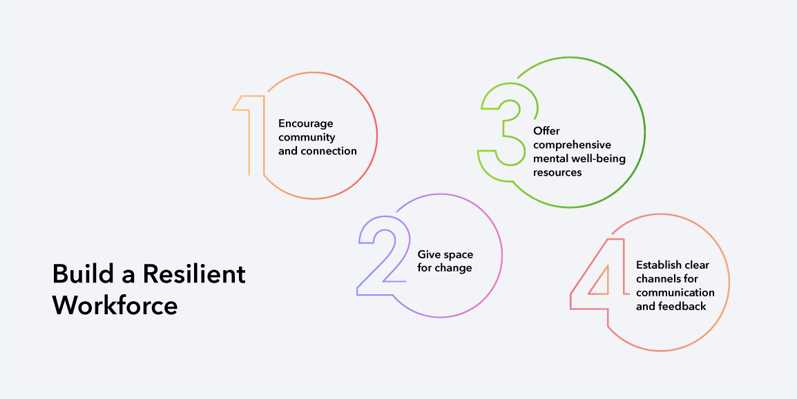
Immigrating to a new country can be a challenging experience, as individuals face a multitude of acculturative stressors during their journey of adaptation. Acculturative stress refers to the psychological and emotional challenges that immigrants encounter as they strive to adapt to a new culture. These stressors can include language barriers, discrimination, social isolation, and the loss of familiar support networks.
Coping with acculturative stress requires resilience, which can be defined as the ability to bounce back from adversity and maintain psychological well-being. Immigrants who exhibit resilience are better equipped to navigate the challenges and pressures of acculturation, ultimately leading to successful adaptation in their new cultural environment.
Resilience is a dynamic process that involves various psychological and behavioral factors. It encompasses the ability to effectively cope with stress, develop a strong sense of self-esteem and identity, and form supportive social connections. Immigrants who possess these qualities are more likely to overcome the obstacles they face and thrive in their new cultural surroundings.
Psychological resilience plays a crucial role in the adaptation process by helping individuals maintain a positive outlook and a sense of control over their lives. It allows immigrants to reframe their acculturative stressors as opportunities for personal growth and development, rather than insurmountable obstacles. By developing effective coping strategies and seeking support from others, immigrants can build their resilience and enhance their overall well-being.
In conclusion, resilience is a vital factor in the successful adaptation of immigrants to a new culture. By cultivating resilience, individuals can navigate the challenges of acculturative stress and build strength in their new cultural environment. It is important for immigrants to recognize the importance of resilience and to actively engage in strategies that promote their psychological well-being and adaptation.
Understanding Resilience and Acculturative Stress
When immigrants move to a new country, they often face numerous challenges and stressors as they navigate the process of acculturation and adaptation. This process, known as acculturative stress, can have a significant impact on their mental health and well-being. Acculturative stress refers to the psychological, emotional, and social challenges that individuals experience as they adjust to a new culture and attempt to integrate into their new society.
The acculturative stress that immigrants face can vary depending on a variety of factors, including their previous experiences, socioeconomic status, and the level of support they receive from their new community. Some common sources of acculturative stress include language barriers, discrimination, cultural differences, and a loss of social support networks.
Despite these challenges, many immigrants demonstrate remarkable resilience in the face of acculturative stress. Resilience refers to the ability to adapt and bounce back from difficult situations. It involves the use of effective coping strategies and the ability to maintain a positive mindset in the face of adversity.
Resilience can play a crucial role in helping immigrants navigate the process of acculturation and adjustment. By developing and utilizing effective coping mechanisms, immigrants can better manage the stress and challenges they face. This may involve seeking social support, engaging in activities that promote well-being, and maintaining a strong sense of cultural identity.
Understanding resilience and acculturative stress is essential for professionals working with immigrant populations. By recognizing the unique challenges that immigrants face during the process of adaptation, professionals can provide targeted support and resources to promote resilience and well-being. This may include providing language assistance, cultural sensitivity training, and access to mental health services.
| Key Terms | Definitions |
|---|---|
| Acculturative stress | The psychological, emotional, and social challenges that individuals experience as they adjust to a new culture and attempt to integrate into their new society. |
| Resilience | The ability to adapt and bounce back from difficult situations, often involving the use of effective coping strategies and a positive mindset. |
| Adaptation | The process of adjusting and adapting to a new culture and environment. |
What is Resilience?
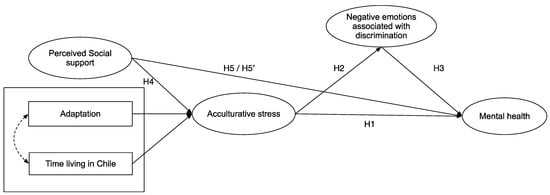
Resilience refers to the ability of individuals, particularly immigrants, to adjust and adapt to new cultures and environments. It is a psychological concept that focuses on one’s ability to bounce back from acculturative stress and overcome challenges related to cultural adjustment.
Immigrants often face various acculturative stressors, such as language barriers, discrimination, and cultural differences, which can impact their well-being and mental health. Resilience plays a crucial role in helping individuals navigate these challenges and maintain their psychological well-being.
Resilience involves utilizing effective coping strategies and developing a positive mindset to overcome the difficulties associated with cultural adaptation. It entails being flexible, open-minded, and willing to learn and grow in the face of adversity.
Individuals with high levels of resilience are more likely to experience successful cultural adjustment and integration. They are better equipped to handle the stressors and uncertainties that come with living in a new culture.
Resilience is not a static trait but rather a skill that can be developed and strengthened over time. Building resilience involves cultivating self-awareness, seeking social support, and practicing self-care. It also involves reframing challenges as opportunities for growth and learning.
Overall, resilience is a vital factor in promoting the well-being and mental health of immigrants and facilitating their successful adaptation to a new culture. By developing resilience, individuals can navigate the complexities of cultural adjustment and thrive in their new environment.
Definition of Resilience
Resilience refers to the ability of individuals to adjust and adapt to psychological, social, and cultural challenges. It is a psychological concept that focuses on the ability to bounce back from difficult circumstances and maintain a positive sense of well-being.
When it comes to acculturative stress, resilience plays a crucial role in helping immigrants navigate the process of cultural adaptation. Immigrants often face numerous challenges when adjusting to a new culture, such as language barriers, discrimination, and feelings of isolation. Resilience enables individuals to effectively cope with these challenges and maintain their mental health.
Resilience is not about avoiding stress or eliminating difficulties altogether, but rather about developing effective coping strategies and bouncing back from adversity. It involves recognizing and utilizing personal strengths, seeking social support, and maintaining a positive mindset.
Overall, resilience is a key factor in the acculturation process, as it helps immigrants build strength and adapt successfully to their new cultural environment. By cultivating resilience, individuals can navigate the challenges of acculturation and thrive in their new cultural setting.
Factors Affecting Resilience
When it comes to acculturative stress and the challenges faced by immigrants in adapting to a new culture, resilience plays a crucial role. Resilience refers to the ability to bounce back from difficult situations and maintain mental well-being in the face of adversity. Understanding the factors that affect resilience can provide valuable insights into how individuals can better cope with the stress of cultural adaptation.
One of the key factors affecting resilience is coping strategies. Immigrants who have effective coping strategies are more likely to have higher levels of resilience. These strategies may include seeking social support, problem-solving, positive reframing, and practicing self-care. By utilizing these coping strategies, individuals can better navigate the stressors of acculturation and maintain their psychological well-being.
Another important factor affecting resilience is social support. Having a strong support network, whether it be family, friends, or community organizations, can significantly impact an individual’s ability to adapt and thrive in a new culture. Social support provides a sense of belonging, validation, and encouragement, which can help individuals build resilience and overcome the challenges they face.
Additionally, personal characteristics and traits can also influence resilience. Factors such as self-esteem, optimism, and a sense of purpose in life have been found to be associated with higher levels of resilience. These personal attributes can help individuals maintain a positive outlook and effectively cope with the stressors of cultural adaptation.
Lastly, the level of acculturative stress experienced by immigrants can impact their resilience. Acculturative stress refers to the psychological and social stressors that individuals encounter when adapting to a new culture. The more significant the stress, the greater the challenge to resilience. However, individuals who are able to effectively manage and cope with this stress are more likely to build resilience and successfully adapt to their new cultural environment.
| Factors Affecting Resilience |
|---|
| Coping Strategies |
| Social Support |
| Personal Characteristics and Traits |
| Acculturative Stress |
What is Acculturative Stress?
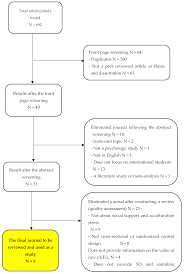
Acculturative stress refers to the psychological and emotional challenges that immigrants experience as they navigate the process of adapting to a new culture. It is a form of stress that arises from the demands and pressures of adjusting to a different cultural environment, often accompanied by feelings of isolation, confusion, and a loss of identity.
Immigrants who face acculturative stress may encounter difficulties in understanding and communicating with others, as well as in acquiring the necessary skills and knowledge to navigate their new surroundings. This can lead to feelings of frustration, anxiety, and a sense of being overwhelmed.
However, it is important to note that not all immigrants experience acculturative stress in the same way. Some individuals may be more resilient and better equipped to cope with the challenges of adaptation, while others may struggle more significantly. Resilience plays a key role in determining how individuals respond to acculturative stress and their ability to successfully adjust to a new culture.
Coping strategies and support systems are vital in helping immigrants navigate the acculturative stress they may encounter. These can include seeking out social support networks, engaging in activities that promote cultural understanding and integration, and developing skills to effectively navigate and adapt to the new cultural environment.
Overall, acculturative stress is a complex and multifaceted experience that immigrants may face as they strive to adjust to a new culture. By understanding and addressing the challenges it presents, individuals can build resilience and foster a sense of belonging in their new cultural context.
Definition of Acculturative Stress
Acculturative stress refers to the psychological challenges faced by immigrants during the process of adaptation and adjustment to a new culture. It is the stress that arises from the demands and pressures of acculturation, which involves learning and adopting the customs, beliefs, values, and behaviors of a new culture.
Immigrants often experience acculturative stress as they navigate the complexities of adapting to a new environment. This stress can stem from various factors, such as language barriers, discrimination, cultural differences, and feelings of isolation. These challenges can have a significant impact on an individual’s mental health and well-being.
Acculturative stress can manifest in various ways, including anxiety, depression, homesickness, identity confusion, and social withdrawal. Individuals may also experience difficulties in coping with the expectations and norms of the new culture, leading to feelings of inadequacy and low self-esteem.
However, it is important to note that not all immigrants experience acculturative stress in the same way. Some individuals may exhibit resilience and adapt successfully to the new culture, while others may struggle more with the adjustment process. Resilience plays a crucial role in how individuals cope with acculturative stress and navigate the challenges of acculturation.
Overall, understanding and addressing acculturative stress is essential for promoting the well-being and successful adaptation of immigrants in their new cultural environment. By providing support and resources to help individuals cope with the stressors of acculturation, we can help foster resilience and facilitate a smoother adjustment process.
Causes of Acculturative Stress
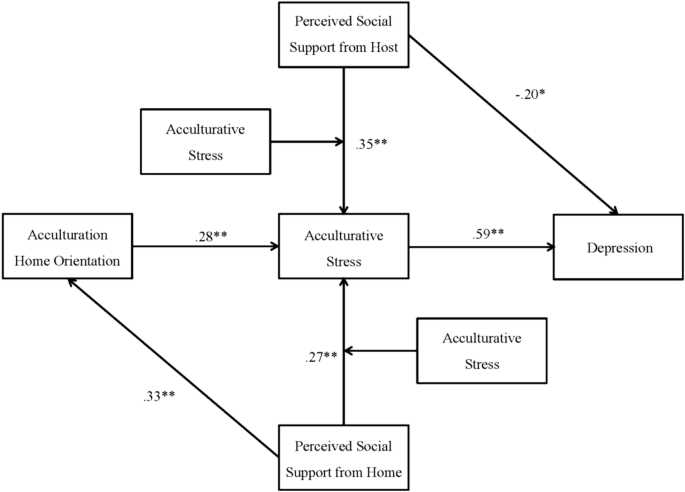
Acculturative stress refers to the psychological and emotional challenges that immigrants face when adapting to a new culture. It is a result of the process of acculturation, which involves the adjustment and adaptation to a new cultural environment.
There are several factors that contribute to acculturative stress. One of the main causes is the loss of familiar social networks and support systems. Immigrants often leave behind their friends and family members, which can lead to feelings of isolation and loneliness.
Another cause of acculturative stress is the language barrier. Immigrants may struggle to communicate effectively in the new language, which can hinder their ability to navigate their new environment and form meaningful connections.
Additionally, cultural differences and unfamiliar social norms can also contribute to acculturative stress. Immigrants may encounter situations where their beliefs, values, and behaviors clash with those of the host culture, leading to feelings of confusion and frustration.
Coping with these challenges requires resilience and adaptability. Immigrants who are able to develop effective coping strategies and seek support from their community and resources available to them are more likely to successfully navigate the acculturation process and reduce acculturative stress.
| Causes of Acculturative Stress |
|---|
| Loss of familiar social networks and support systems |
| Language barrier |
| Cultural differences and unfamiliar social norms |
Building Resilience in a New Culture
Immigrating to a new country can be a challenging experience, as individuals face various acculturative stressors that can impact their psychological well-being. Coping with these stressors and adjusting to a new culture requires resilience.
Resilience refers to the ability to bounce back from difficult situations and adapt to new challenges. It involves developing a set of psychological and emotional skills that help individuals navigate the ups and downs of life in a new culture.
One of the key factors in building resilience is recognizing and acknowledging the challenges that come with acculturation. Immigrants often face language barriers, discrimination, and a loss of social support networks. These stressors can lead to feelings of isolation, anxiety, and depression.
To build resilience, immigrants can focus on developing coping strategies that help them navigate these challenges. This may involve seeking social support from peers, joining community organizations, or finding ways to maintain connections with their cultural heritage.
Additionally, developing a positive mindset and reframing negative experiences can also contribute to building resilience. This can involve practicing self-care, engaging in activities that bring joy and fulfillment, and cultivating a sense of gratitude for the opportunities that come with living in a new culture.
Building resilience is an ongoing process that requires effort and self-reflection. It is important for immigrants to recognize that it is normal to experience acculturative stress, but that they have the ability to overcome these challenges and thrive in their new culture.
By focusing on building resilience, immigrants can develop the psychological strength to navigate the complexities of their new environment and create a fulfilling life in their adopted country.
Developing a Support Network
Immigrants face numerous challenges when adapting to a new culture, which can lead to acculturative stress and psychological difficulties. However, developing a strong support network can greatly enhance their resilience and coping abilities.
A support network consists of individuals, groups, or organizations that provide emotional, practical, and informational support to immigrants. This network can include family members, friends, fellow immigrants, community organizations, and professionals such as counselors or social workers.
Having a support network can help immigrants navigate the challenges of adjusting to a new culture. They can provide a listening ear, offer advice and guidance, and help immigrants access resources and services that can assist in their adaptation process.
Support networks can also provide a sense of belonging and connectedness, which is crucial for immigrants who may feel isolated or disconnected in their new environment. By fostering social connections and relationships, immigrants can build a sense of community and develop a support system that can help them overcome stress and adversity.
Additionally, support networks can play a vital role in promoting cultural preservation and identity. Immigrants can share their experiences, traditions, and values with others in their network, fostering a sense of pride and belonging in their cultural heritage.
In conclusion, developing a support network is essential for immigrants facing acculturative stress and psychological challenges. By connecting with others and accessing the necessary support and resources, immigrants can enhance their resilience and successfully adapt to their new culture.
Building Relationships
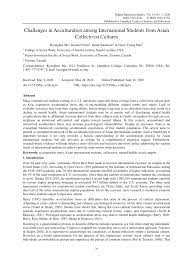
One of the key factors in the psychological adaptation and resilience of immigrants in a new culture is their ability to build relationships. Moving to a new country brings with it a multitude of challenges and stressors, and having a support network can greatly aid in the adjustment process.
Acculturative stress, which refers to the psychological and social challenges faced by individuals when adapting to a new culture, can be overwhelming. However, by forming connections with others, immigrants can find a sense of belonging and support that helps them navigate these difficulties.
Building relationships with individuals from both the host culture and other immigrants can provide a valuable support system. These connections can offer practical advice, emotional support, and a sense of community. They can also provide opportunities for cultural exchange and learning, which can enhance the adaptation process.
Strong relationships can also serve as a buffer against the negative effects of acculturative stress. Immigrants who have a strong support network are more likely to exhibit resilience and adapt successfully to their new environment.
It is important for immigrants to actively seek out opportunities to build relationships, whether through community organizations, social events, or educational institutions. By reaching out to others and fostering connections, immigrants can enhance their psychological well-being and overall adjustment to the new culture.
In conclusion, building relationships is a vital aspect of the adaptation and resilience of immigrants in a new culture. These connections provide support, facilitate cultural exchange, and help individuals navigate the challenges of acculturative stress. By actively seeking out opportunities to build relationships, immigrants can enhance their overall well-being and successfully adjust to their new environment.
Seeking Professional Help
While resilience and acculturative adjustment are important factors in the coping and adaptation process for immigrants facing challenges in a new culture, there may be times when professional help is necessary to manage the stress and difficulties that arise.
Seeking professional help can provide immigrants with the tools and support they need to navigate the acculturative process and build resilience. Mental health professionals who specialize in working with immigrants can offer therapy and counseling services tailored to address the unique challenges and stressors that immigrants face.
These professionals can help immigrants develop coping strategies to manage acculturative stress, provide guidance on navigating cultural differences, and offer support in building a strong sense of identity and belonging in the new culture.
Additionally, seeking professional help can also be beneficial for immigrants who may be experiencing more severe mental health issues, such as depression or anxiety. Mental health professionals can provide an assessment and diagnosis, and offer appropriate treatment options to help individuals overcome these challenges.
It is important for immigrants to remember that seeking professional help is not a sign of weakness, but rather a proactive step towards building resilience and finding support during the acculturative process. By reaching out for assistance, immigrants can gain valuable resources and strategies to help them navigate the challenges they face and ultimately thrive in their new culture.

I am Patrina de Silva, a psychologist and mental health blogger in Sri Lanka. After obtaining psychology degrees from the University of Colombo and Monash University, I returned home to work as a counselor while also starting the popular blog “Pressy but Happy” to provide advice on psychological issues. Over the past decade, my empathetic articles have made my blog a leading mental health resource in the country. In addition to writing, I maintain a private therapy practice, frequently volunteer counseling time, and conduct seminars, driven by my passion for destigmatizing mental illness and educating the public on the mind-body connection. I strive to be an influential voice in my field through my compassionate approach.
